Monday, July 31, 2017
Saturday, July 29, 2017
Friday, July 28, 2017
Thursday, July 27, 2017
THE MOST POWERFUL PRESIDENT IN THE WORLD, APOLOGIZES TO PRES. DUTERTE!!! READ ON...
NEWS UPDATE: TRUMP APOLOGIZES TO DUTERTE FOR ‘FOOLISH’ STATEMENTS FROM SENATORS
President Donald Trump on Saturday morning apologized to the Philippines strongman Rodrigo Duterte for lewd statement that was made by US Congress about the Philippine leader. He said Senator’s reckless comments can hurt his good relationship with Duterte and that he had to apologize.
“I’ve never said I’m a perfect person, nor pretended to be someone that I’m not. I’ve said and done things I regret, but the statement released yesterday by the co-chair of the Human rights commission, Jim McGovern was wrong and ‘foolish.’ It would be a big shame for US to lose genius people like my brother Duterte, and therefore on behalf of Americans I wish to apologize.” Trump said in a brief video statement released late Friday night as a number of Senators distanced themselves from senator Jim McGovern who had threatened to protest should Duterte visits US.
Trump said that the reckless statement– which was made public by The Washington Post on Friday afternoon — is “a distraction from the important issues we are facing today.” He then attacked Senator Jim McGovern and his Democratic crew saying–“they are afraid of Duterte coming to America because they are drug users and Duterte strictly does not entertain drug users.” He then said his invitation to Duterte is still on and he would go to Philippines for a physical apology.
Senate Majority Leader Mitch McConnell (R-Ky.) said McGovern’s comments are personal “repugnant, and unacceptable in any circumstance” and called on McGovern “to apologize directly to the people of Philippines and their leader, and take full responsibility for the utter lack of respect for the respected President Duterte.” House Majority Leader Kevin McCarthy (R-Calif.) called on McGovern to issue a “full and unqualified apology.
The co-chair of the commission, Jim McGovern, had opposed a visit by President Duterte to the US, saying that he would protest such a move due to multiple violations of human rights by the leader.
On other side President Duterte issued a statement on Friday saying–“There will never be a time that I will go to America during my term, or even thereafter.”
http://thephilippinepolitics.com/news-update-trump-apologizes-duterte-foolish-statements-senators/
Hontiveros dared to return P1.76b in PhilHealth bonuses
posted April 13, 2016 at 12:01 am
The National Association of Lawyers for Justice and Peace on Tuesday challenged senatorial bet Risa Hontiveros to prove that she’s worthy of the people’s trust by spearheading the return of the P1.761 billion in unauthorized bonuses granted to officers and employees of PhilHealth in 2013 during her term there as board member.
NALJP founding chairman Jesus Santos pointed out that public office is a public trust.
“Since PhilHealth funds are the people’s money, Ms. Hontiveros should show us that we can trust her with our welfare by leading efforts to get back the illegal bonuses. If she will not do anything about it, there’s no reason to be confident that she will indeed serve the people should she win,” Santos said.
PhilHealth had claimed that the bonuses were covered by board resolutions. But the Commission on Audit said the resolutions were not submitted to the Office of the President for approval as required under Section 6 of Presidential Decree 1597.
“As a board member, Ms. Hontiveros should have known of the conflict with Presidential Decree 1597. But it has never been reported that she has exerted any effort for the return of the illegal bonuses. Nobody knows if she had even opposed the unauthorized bonuses, or had just simply went along with those who allowed it,” Santos said.
Santos said PhilHealth funds are exclusively for the medical needs of its members and not for the personal interests of a few.
“One can only imagine the volume of medicines and medical needs, or the extent of medical care and the number of beneficiaries which could have been bought and provided for the sick by the P1.761-billion unauthorized bonuses.
“Ms. Hontiveros owes the people a lot of explanation,” Santos stressed.
Another group of lawyers asked the Department of Budget and Management to release the P139-million retirement benefits of public attorneys that it has been withholding since 2010.
“With no more income from any form of employment, we are relying on our retirement package to support our needs for sustenance—utilities, food and most of all, medicines. Most of us are nearing the end of our days and slowly, our bodies are beginning to succumb to various forms of illness; yet, we refuse to accept even the remote possibility that we will be abandoned by this government, our former employer, in a hapless state,” 40 retired lawyers from the Public Attorney’s Office said in a manifesto.
The P139 million is the total amount of retirement gratuity package for the 40 public defenders using as basis for its computation are Republic Act 9406 or the PAO Law in relation to RA 10071 or the National Prosecution Service Law.
In an opinion released by its Legal Service, the DBM said PAO lawyers are not entitled to the same retirement package as that of the prosecutors and judges prompting the withholding of the retirement gratuity package.
Under Section 5 of the PAO Law, a PAO lawyer shall have the same qualifications for appointment, rank, salaries, allowances and retirement privileges as those of a public prosecutor.
However, last paragraph of Section 16 of the Napross Law provides that “the salaries, allowances and other emoluments herein fixed shall not apply to officers other than those of prosecutors in the National Prosecution Service, notwithstanding any provision of law assimilating the salaries of other officers to those herein mentioned.”
The DBM then requested a legal opinion from the Department of Justice which turned the request into an arbitration proceeding where the PAO office is the respondent and set a hearing on May 3.
In a separate statement, incumbent PAO lawyers backed the call of their retired colleagues, saying Section 16 of the NAPROSS Law is a general provision that may not repeal Section 5 of the PAO Law, which is a special provision.
“To interpret the Napross Law as repealing the PAO Law would be to offend the legislative intent of Congress in enacting both laws,” the PAO lawyers stressed.
PAO lawyers also scored on the current position of the DBM as it pointed out that its previous issuances—letter to former Justice secretary Leila de Lima, DBM and GSIS Joint Circular 2013-1 signed by Budget Secretary Florencio Abad himself recognized that PAO lawyers are entitled to the same retirement pay of public prosecutors.
PAO chief Persida Rueda-Acosta said the only benefits claimed by the retirees are the return of the premium and life insurance from the Government Service Insurance System.
The return of the premium is simply the reimbursement of excess of six percent deducted from PAO lawyers. Previously, it was nine percent but it was reduced to only three percent.
Duterte reminded Filipinos who they REALLY are during his #SONA2017 address
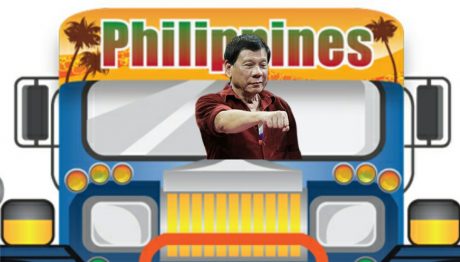
Self-anointed disente Filipinos were aghast with what they described as the balasubas (uncouth) behaviour of Philippine President Rodrigo Duterte as he delivered his second State of the Nation Address (SONA) last Monday. The alluring Senator Risa Hontiveros, one of Duterte’s chief critics in the Senate sported her hottest resting bitch face (RBF) which she kept locked on in a show of passive-aggressive contempt for the president over much of the session. The holier-than-thouTwitterati of the Opposition cringed and whinged over “live tweets” throughout, remaining glued to the tube despite their pain. Trending wannabes kept score on a SONA bingo sheet the results of which they later published in memes showing how many cusses and mentions of “drahhggsz” they chalked up over those two hours of cringe.
If there was anything significant that the Duterte Show achieved, it was in demonstrating just how irrelevant the old guard of the disente crowd had become. In essence, Duterte drove a clattering jeepney right into Congress and onto the screens on which Filipinos’ eyeballs were glued for two hours and reminded everyone who the Filipino really is.
Hold that thought for a moment and consider The Jeepney; erstwhile symbol of Filipino “ingenuity” and persistent cultural icon. They may now be regarded as anything but a symbol of “ingenuity” in the normal sense of that word but they remain the same unfortunate Filipino cultural icon. Jeepneys still rule Philippine roads with impunity, spewing corrosive fumes, flouting every road rule, and fouling up traffic flow. By virtue of their sheer price-crushing numbers, they hold the public transport industry hostage and attract politicians’ pandering virtually assuring their continued reign as the Philippines’ King of the Road.
If one needs a sweeping archetype of the average Filipino, look no further than the jeepney.
For as long as Filipinos tolerate the way this astounding social cancer makes a mockery of civil behaviour on the ground, Filipinos will lack any ascendancy to judge bad manners and bad behaviour above ground.
It should be no mystery why the way Duterte wears who he is on his sleeve today is so refreshing to Filipinos. It is beause he introduces consistency in what was once a fake democracy. I would have liked to have said that not one of the many presidents who sat in Malacanang actually mirrored the Filipino electorate as accurately and that Duterte broke that trend. However, in actual fact, former President Joseph “Erap” Estrada beat Duterte to that title in 1998. But the Erap presidency provides important context to the Duterte administration. Like Duterte today, Erap was relentlessly demonised by the same camp of disente Filipinos (at the time just as presumpuously calling themselves “civil society”) and, on the back of that vilification campaign, was successfully removed from office illegally. Fast forward to today and it is now easy to see with the benefit of that hindsight that the ouster of Erap is being used as the same model by the same mob to end the Duterte government prematurely.

It is no coincidence that the two Filipino presidents who best mirrored the average Filipino — Erap and Duterte — were subject to virtually the same demonisation campaigns by the same cliques of chatterati backed by the same industry and institution (i.e. mainstream news media and the Roman Catholic Church respectively). Erap was unfortunate in that whilst his voters were real Filipinos, those who surrounded him once in power and those who had the power to vilify him were not representative of that real sector. What Duterte did today that Erap failed to do then was to bring Manila’s imperial court face-to-face with who he is — a true representative of his voters.
What escapes the pompous “influencers” of the Opposition who sneer at Duterte’s conduct during the SONA is that they are, in reality, sneering at the real Filipino. After all, in a democracy, elected leaders, in principle, reflect the collective character of The Vote.
print
The Philippines’ Commission on Human Rights is a waste of space and should be abolished
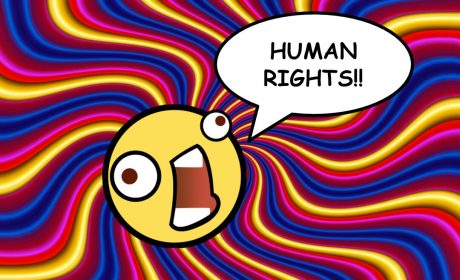
Put in the form of a more confronting question, the debate around the point (if any) of having a “Commission on Human Rights” (CHR) becomes a bit more clear…
If the Philippines’ Commission on Human Rights were to disappear tomorrow, would there be any significant consequences to the average Filipino?
I posed the question several times over Twitter and did not get any convincing answers — not even from the CHR Twitter account handler him/herself. The only thing of cosmetic substance that routinely emerges from the Philippine brains trust is the rather lame argument that the 1987 Constitution “mandates” its existence. In essence, the fate of the CHR hangs on to the legitimacy of a piece of paper and not on an actual independent value proposition to the Filipino.
Indeed, it is quite possible that the creation of the “need” for a human rights “watchdog” back in 1987 when the Cory Aquino’s Constitution was ratified was an overcompensation riding on the post-“revolution” euphoria of the time — a time when Filipinos fully embraced, hook line and sinker, the notion that the Philippines failed to prosper because of a lack of “human rights” vigilance. It’s sort of like how a jilted girl suddenly becomes a man-hater on the basis of one unfortunate blip in her lovelife.
Functionally, however, the CHR is no more than an expensive lobby group funded by Filipino taxpayers. Its main tasks collectively amount to no more than issuing commentary about anything and everything to do with “human rights” that gets mentioned by the chatterati and, perhaps, the odd schmoozing with its counterparts in other countries courtesy of taxpayer-funded junkets every now and then. It does not enforce anything nor exercise any administrative power over anyone. A Supreme Court ruling in 1991 confirmed that “the Commission did not possess the power of adjudication, and emphasized that its functions were primarily investigatory.”
The idea that “human rights” will no longer be upheld in the Philippines if the CHR disappears is nonsensical. “Human rights” are enshrined in Article III (a.k.a. the “Bill of Rights”) of Cory’s Constitution — which means Filipinos are already (1) protected from future legislation that may violate its tenets and (2) protected by existing laws enacted to uphold these tenets.
Because there already exists a body of laws built around the Bill of Rights, most “human rights violations” are already likely within scope of existing law enforcement agencies to investigate and prosecute. Indeed, when it comes to “investigating” so-called “human rights violations”, the CHR is effectively just a middleman — essentially a waste of time and space. Indeed it is likely because of this crisis of relevance at a functional or administrative level that the CHR has become hopelessly politicised — and has degenerated to nothing more than an outlet for “human rights” sloganeering today.
The CHR mandate is actually quite presumptuous. It exists under the assumption that, left to their own devices, the entire criminal justice system of the Philippines — the police and the courts — will fail to uphold the spirit of the Bill of Rights in the course of its operation. Furthermore, it exists on the basis of a blanket suspicion that executives and legislators of the Philippine government will effect measures to contravene the Bill of Rights. In short, the CHR’s existence presumes criminal intent in the Philippine government that justifies existence of a “human rights watchdog”. On that basis is propped the lofty “cause” of the CHR as “guardians of the guardians”.
In short, the Commission on Human Rights is not only a redundant organisation, it is a non-sensical one. This is the reason it behaves and positions itself erratically on the political landscape — because it lacks a sensible mission and relies on posturing to maintain a semblance of relevance.
One could actually forgive even some senators who are not clear on what the CHR actually is or what it stands for — because not knowing who or what they are is actually of no consequence to anyone, not even the voters.
Indeed, as far as the key focus of its public relations effort goes, the CHR defines itself primarily around what it is not rather than what it is. As it had tweeted ad infinitum “we are not a law enforcement agency”. It goes further to affirm the blanket assumption that underpins its efforts — that the government, overall, is up to no good…
Ang CHR ay hindi pulis. Ayon sa Konstitusyon, mandato nito na bantayan ang gobyerno sa pagkakataon ng pang-aabuso sa mga karapatang pantao.
Translated to English: “The CHR is not the police. According to the Constitution, its mandate is to guard the government anticipating instances where it seeks to abuse human rights.”
To give credit to whoever composed this tweet, it neatly encapsulates the long-winded message of this article — that, like the venerable 1990s sitcom Seinfeld, the CHR is essentially a comedy show about nothing.
print
#SONA2017 proves that Duterte is LEGALLY popular!
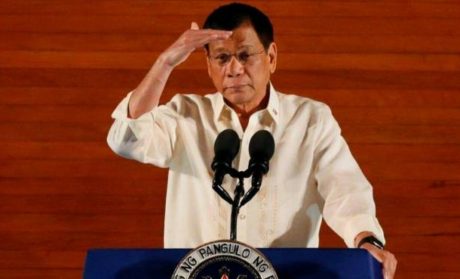
The second State of the Nation Address (SONA) of Philippine President Rodrigo Duterte was a hit. Short of trawling the technical report that underpins it, that’s really the only key takeaway from the show Duterte put on yesterday, the 24th July 2017. It was a speech validated by applause and social media engagement around the “worldwide-trending” hashtag #SONA2017.
Like a good Game of Thrones episode, the Duterte Show delivered a media feast — content that appeals to every vestige of our reptilian complexes, sex, drugs, and rock-n-roll with a dash of the important issues as footnotes. The same formula that makesThrones a hit is behind what makes Duterte a hit. Indeed, monitoring my social media timelines, I find it quite amusing to see Tweetizens who, on one hand, would be gushing about the latest Thrones episode and, on another, be gnashing their teeth in outrage over Duterte’s antics.
Duterte is a product of the system enacted by the “revolutionary” government of President Cory Aquino in 1987. The 1987 Constitution was hurriedly ratified to legitimise what, until then, was an illegal government. So effective was this technique of siezing power that it was done again in 2001 (and attempted many times after). This Constitution put the “people’s will” on a pedestal so much so that there was conceptual room (with a bit of creative lawyering) to legalise anything given a stamp of approval by a critical mass of people shouting loud enough on any Manila street.
Like any leader of any democracy, Duterte’s power — his ability to push things through Congress and influence the judiciary — comes from his popularity. But unlike the popularity of traditional Yellow leaders, his is a popularity legally channeled through institutions. He was elected fair-and-square (albeit likely with a big enough margin to mitigate the effects of alleged electoral fraud perpetrated by his main rival in the 2016 elections). And he sustained that popularity by simply being himself.
To this day, Duterte’s popularity-enabled power manifests itself and is applied legally — channeled through the halls of Congress where, in a recent example, Martial Law, the erstwhile political bogeyman of yore, was given a renewed spot under a positive light as a way forward to building a strong nation. As far as we have observed, he has never hinted at extra-constitutional means to push his agenda through. This is in stark contrast with the way adherents of the Yellow Camp (a.k.a. the Philippines’ Liberal Party) think. To the Yellowtards, extra-constitutional means to get their way are always an option. They’ll “take to the streets” at the drop of a hat or, more specifically, at the slightest hint that they feel their self-bestowedentitlement to power is threatened.
Former president Benigno Simeon ‘BS’ Aquino III embodied this temperamental brattiness often mistakenly attributed only to young “millennials”. In the lead up to the 2016 presidential elections, BS Aquino threatened to launch ‘people power’ if Duterte and (then VP candidate) Bongbong Marcos won the election…
But what is more worrisome now is that President Benigno Simeon Aquino III (PNoy) said he will lead a people power uprising if a DU30-BBM win happens. This is not an empty threat. He might not have people since his favorability rating is now zero in NCR and his Laglagan Party will no longer be there. Unfortunately, his core group remains. These bastards think the Philippines is all about them and all for them. They created a bubble economy to prop up their image, but really not to help the country. They will now incite havoc to burst that bubble. They can do that easily. PNoy has demonstrated his capability for treason just to advance themselves as he did in his now-infamous Bangsamoro Basic Law (BBL) project.
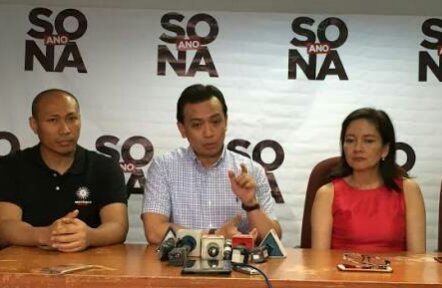
Key Opposition Senators Antonio Trillanes, Risa Hontiveros, and another guy.
This was the fatal error of the Liberal Party in 2016 and the reason they continue to languish in inutile chaos today. The current Opposition led by the Yellowtards’ “prayerful” lot continue to believe in an entitlement to win in a “democracy” premised on goodness as defined by religious scripture and dogma. They lack a scientific approach to winning elections and sustaining popularity. They would rather believe in hocus pocus ideas on why they ought to be in power rather than on sound reasons why they lost the Philippines and continue to fail today.
This lesson should not be lost in Duterte’s government either. Rather than rest on their laurels, Team Duterte should step up and be better than they are today. For all the president’s men, the key challenge lies in becoming more organised, coherent, and scientific in a concerted effort to sustain and secure the enormous political capital their boss possesses today. Unlike the Yellowtards who failed to invest in getting to know and understand their enemy, it seems that Team Duterte have a clear picture of who their enemies are and what they are up against. That knowledge needs to be used wisely.
print
Wednesday, July 26, 2017
Will Philippines' Rodrigo Duterte Win The Nobel Peace Prize?
Nobel Peace Prize for Colombia's Juan Manuel Santos
 Image copyrightAFP
Image copyrightAFP
Colombian President Juan Manuel Santos has been awarded the Nobel Peace Prize for his efforts to end the 52-year conflict with left-wing rebels.
The Nobel committee praised him for a peace deal signed with Farc rebels, but rejected by Colombians in a vote.
Mr Santos said he dedicated the award to "all the victims of the conflict", and the Farc leader congratulated him.
About 260,000 people have been killed and more than six million internally displaced in Colombia.
The award did not include Farc leader Rodrigo Londono, known as Timochenko, who also signed the accord.
- Who are the Farc?
- Colombia media hopeful over Santos peace prize
- Viewpoint: What next for Colombia?
- Santos: From hawk to dove
The head of the Nobel commitee said the award recognised the president's "resolute efforts" to end the conflict.
"The award should also be seen as a tribute to the Colombian people who, despite great hardships and abuses, have not given up hope of a just peace, and to all the parties who have contributed to the peace process," Kaci Kullman Five added.
Juan Manuel Santos
 Image copyrightEPA
Image copyrightEPA- Born in Bogota in 10 August 1951 in an influential family
- Elected Colombian president in 2010 and re-elected in 2014
- Served as defence minister from 2006 until 2009
- Married, has two sons and one daughter
Sources: BBC Monitoring, Colombian presidency
Mr Santos said on Twitter: "This honourable distinction is not for me, it's for all the victims of the conflict. Together we'll win the most important award of them all: peace."
The peace deal was rejected by 50.2% of voters who went to the polls on 2 October.
The committee acknowledged the result, saying: "What the 'No' side rejected was not the desire for peace, but a specific peace agreement."
It also said that finding a balance between the need for reconciliation and ensuring justice for the victims would be a difficult challenge.
Also on Twitter, Farc leader Timochenko said: "I congratulate President Juan Manuel Santos, Cuba and Norway, who sponsored the process, and Venezuela and Chile, who assisted it, without them, peace would be impossible."
Earlier, he had written: "The only prize we aspire to is peace with social justice for Colombia, without (right-wing) paramilitary groups, without retaliation or lies. Peace in the streets."
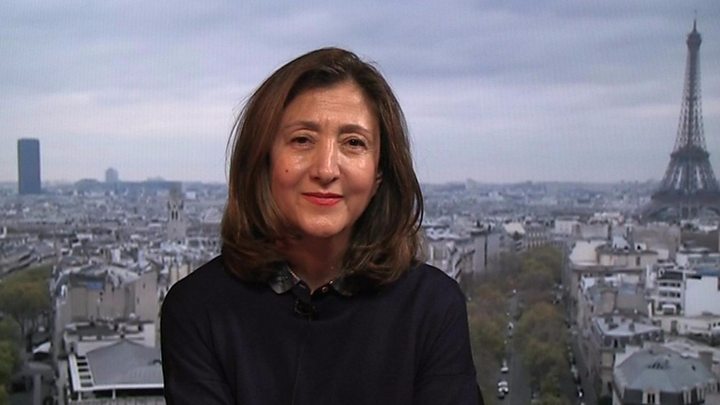
A deal that wasn't: By Jonathan Marcus, BBC diplomatic correspondent
This was a Peace Prize for a peace deal that wasn't. President Santos joins a long line of Nobel Peace Prize winners who have been rewarded for effort as much as achievement.
But it is too easy to be cynical. The Nobel Peace Prize has often been controversial. In recent years a variety of international bureaucracies have won - the EU, the IAEA and the OPCW.
Why, some have argued, should people get a prize for simply doing their job? What, others ask, had US President Barack Obama actually done to merit the prize in 2009, other than be elected?
But the Nobel has often gone to extraordinary individuals who really have gone above and beyond to bring peace - in Northern Ireland and East Timor to name just two examples. Maybe the award to President Santos may yet galvanise public opinion in Colombia to think again about the deal.
Critics, led by former president Alvaro Uribe, said the deal was too lenient to the rebels.
Under the agreement, special courts would have been created to try crimes committed during the conflict.
Those who confessed would have received lighter sentences and avoided serving any time in conventional prisons.
The Farc would also have been guaranteed 10 seats in the Colombian Congress in the 2018 and 2022 elections.
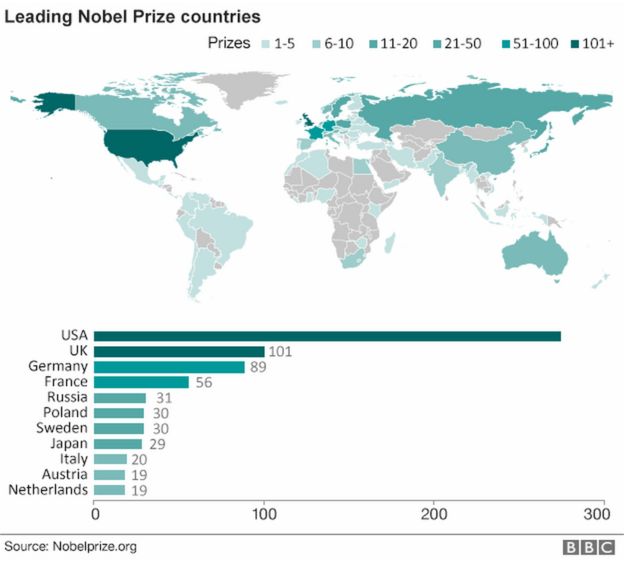
Despite the rejection by voters, Mr Santos vowed to continue with talks with the rebels.
Government negotiators have already returned to the Cuban capital Havana for further discussions with Farc leaders.
Kaci Kullman Five, from the Nobel committee, said the award was also meant as "encouragement" to the rebels.
"Giving the prize to Santos is not a belittlement to any of the other parties.
"The Farc is obviously a very important part of this process.''
The Farc's 52-year fight
 Image copyrightREUTERS
Image copyrightREUTERS
1964: Set up as armed wing of Communist Party
2002: At its height, it had an army of 20,000 fighters controlling up to a third of the country. Senator Ingrid Betancourt was kidnapped and held for six years along with 14 other hostages
2008: The Farc suffers a series of defeats in its worst year
2012: Start of peace talks in Havana
2016: Definitive ceasefire
Mr Santos was selected from a list of 376 candidates - 228 were individuals and 148 were organisations. They included:
- the Syrian White Helmets, civil defence volunteers who rescue bomb victims
- the negotiators of the international deal to limit Iran's nuclear programme
- Greek islanders on the front line of Europe's refugee crisis
 Image copyrightTWITTER - @SYRIACIVILDEF
Image copyrightTWITTER - @SYRIACIVILDEFHow the prize is decided
 Image copyrightAP
Image copyrightAP- Eligible nominators from around the world can put forward candidates up to 1 February of the award year, while Nobel Committee members have more time
- All nominations are reviewed by the committee - whose five members are chosen by the Norwegian parliament - before a shortlist of 20-30 candidates are selected
- A group of Norwegian and international advisers write individual reports on the shortlisted candidates. Using these and further reports, the committee narrows the selection down to a handful
- A decision is reached in the last meeting of the committee, usually in late September or early October, before the prize is announced
- If a unanimous decision cannot be reached, a simple majority vote is used
- After the announcement, the award ceremony takes place on 10 December, the date of Alfred Nobel's death